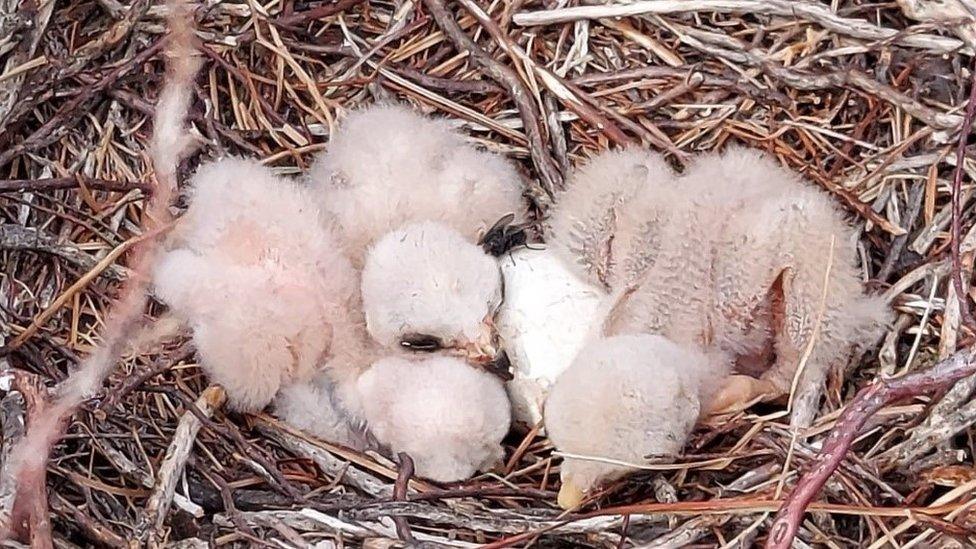Mutilated rare hen harrier found near Cumbrian border
- Published
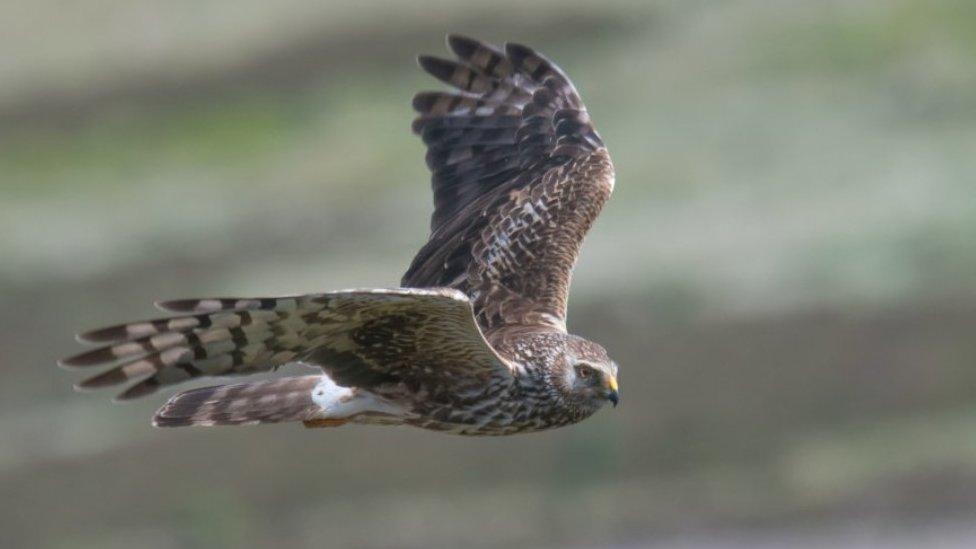
In northern England 20 birds have vanished since April 2022, the RSPB said
Natural England says it is "sickened by evidence of persecution" to hen harriers after 20 went missing from northern England in the past year.
One tagged bird was found on a grouse moor in the Yorkshire Dales National Park, near the Cumbrian border, with its head and a leg missing.
Two breeding males vanished from the Geltsdale Nature Reserve, leaving egg-laden nests abandoned, the RSPB said.
Illegal killings are suspected as the birds prey on grouse chicks.
A post-mortem examination concluded the mutilated bird had died by having its head pulled off while it was still alive.
Two other tagged birds also vanished in the same area at around the same time, last spring.
A subsequent police investigation did not lead to any charges and since then, the RSPB says, a further four satellite-tagged hen harriers have disappeared in the same area, that is managed for driven grouse shooting.
A Natural England study found that young hen harriers living on grouse moors in England are 10 times more likely to die than those in other remote areas like Orkney.
In 2022 there were 34 successful nests in England despite there being enough food and habitat to support more than 300 pairs.
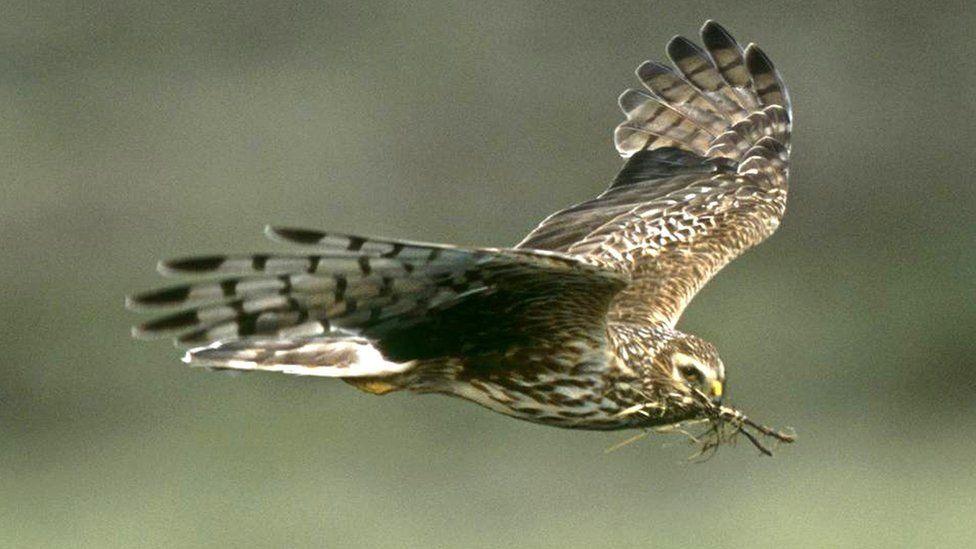
The hen harrier is known as the skydancer due to its agility on the wing
John Holmes, from Natural England, said: "We are sickened by this evidence of persecution, which remains a serious issue and needs more focus and action from the police, businesses, landowners, and game management interests."
The 20 missing birds have been reported to the police and the National Wildlife Crime Unit.
A spokesperson for the Moorland Association said: "Any incident of raptor persecution is to be deplored and we support criminal prosecution of anyone who harms a bird of prey.
"There are a variety of reasons why satellite tags stop transmitting and it is certainly not the case that something suspicious has happened to a hen harrier every time a tag signal is lost.
They said hen harriers "have very high rates of natural mortality in the first year of life" and it was "totally misleading" to link all losses to persecution.
The RSPB's conservation director Katie-Jo Luxton said the disappeared birds represented "a significant proportion of the existing English hen harrier population".
She added: "The government's own study found illegal killing to be the main reason preventing the recovery of this species."

Follow BBC North East & Cumbria on Twitter, external, Facebook, external and Instagram, external. Send your story ideas to northeastandcumbria@bbc.co.uk, external.
Related topics
- Published26 August 2022
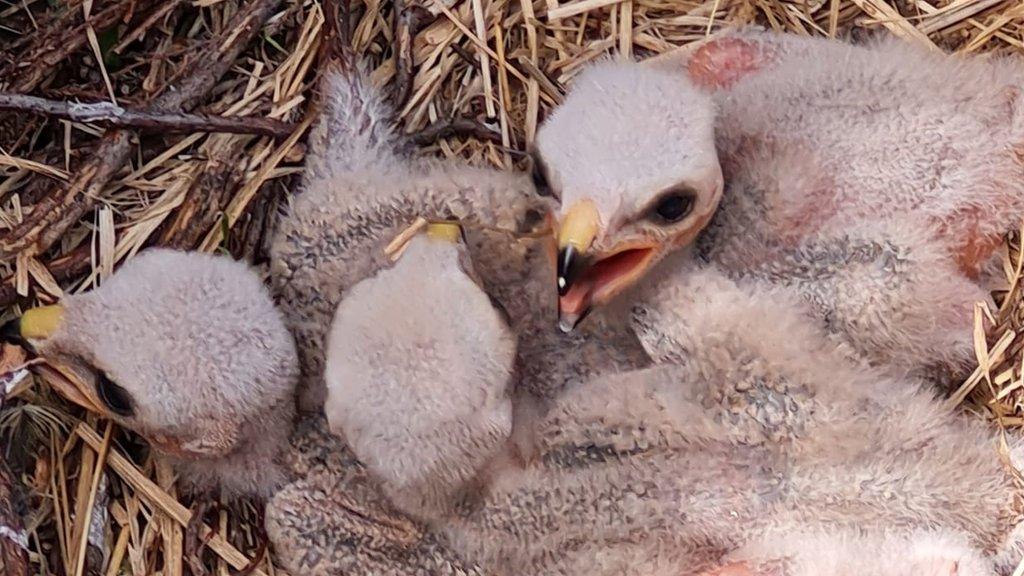
- Published25 August 2022
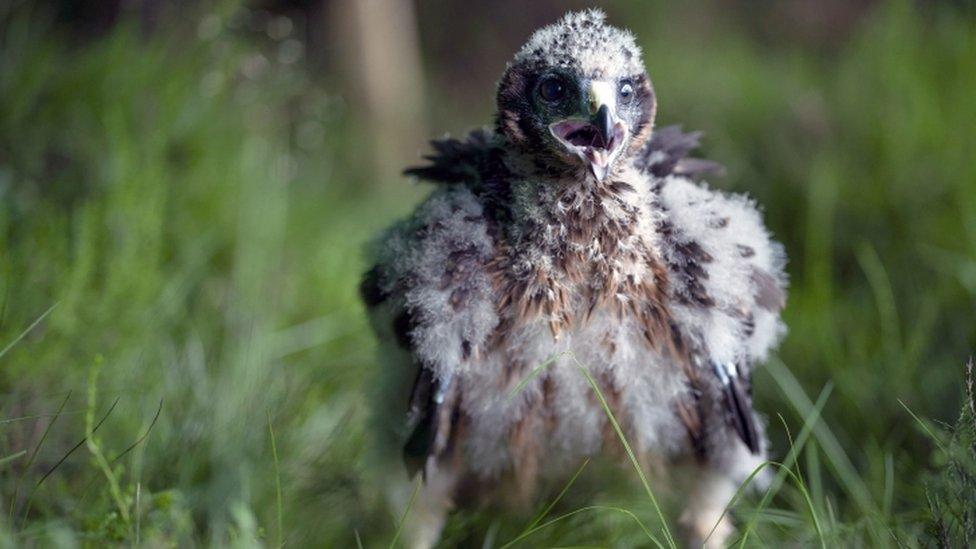
- Published21 May 2022
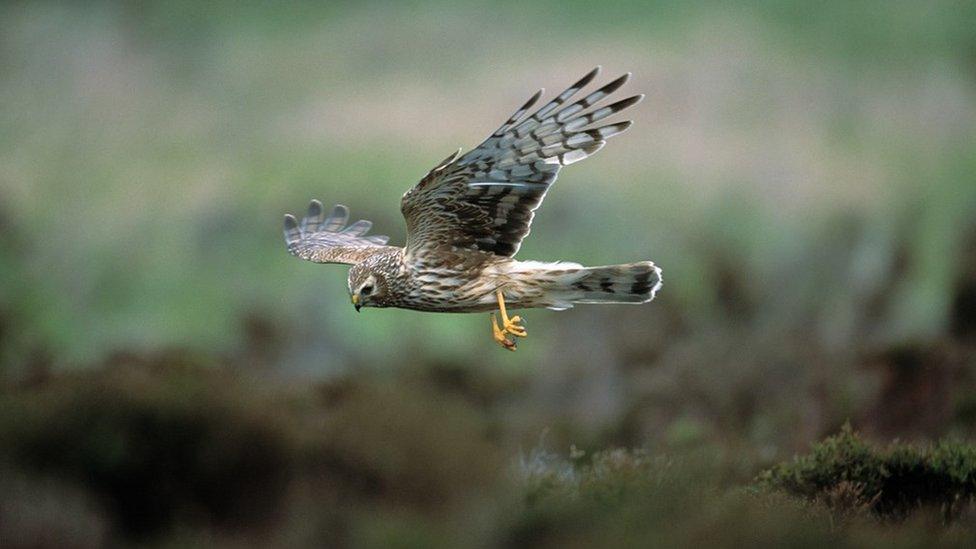
- Published12 May 2022
